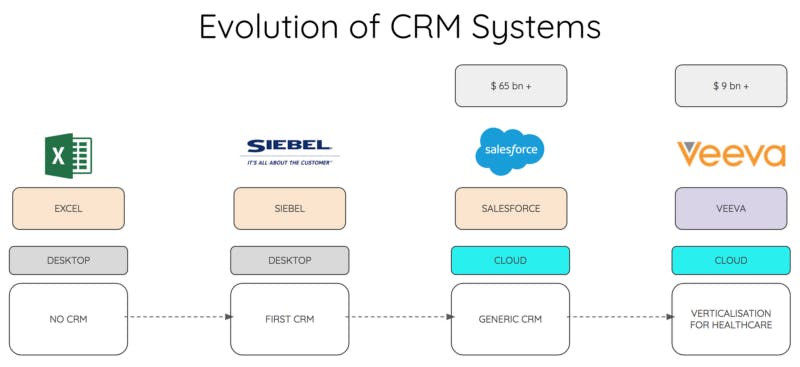The Inflection Point for BI Platforms

The recent story from WSJ on Finance Chiefs asking their teams to move away from Excel generated a lot of buzz with folks debating the article with a lot of passion on Twitter and other channels, so much so that WSJ had to publish a follow-up to the article presenting the dissenting voice!
I personally found the debate to be somewhat perplexing since most industries have already moved away from Excel which is a horizontal solution to deeper vertical solutions. Most sales teams used to use spreadsheets as a rudimentary CRM before the CRM Industry took off and solutions like Salesforce came along. CRM choices are now debated with vertical solutions, not Excel! Same with ATS or Applicant Tracking System. Can you imagine going back from a dedicated solution like Lever or Greenhouse to Excel?
Just as Excel is being disrupted by vertical solutions, another industry that will start seeing disruption is the BI Industry. BI is an all-encompassing term to centralize all the KPI’s a co. needs to track but not only is it being used as an Executive level dashboarding solution, but also by vertical heads to streamline more granular data at a customized vertical level like HR, Finance, Marketing, Sales etc and to customize it for each business vertical requires a small army of analysts + engineers to build and deploy.
To see how the BI Industry might evolve let’s look at the CRM Industry and how the industry has changed over the years.
The CRM industry essentially started with Siebel. Early naysayers called the CRM a “glorified database” which while technically accurate completely missed the value of context and workflows.

The next inflection point was the launch of Salesforce which was the first cloud-based solution and this was seminal in so many ways. Not only was it a big shift in the CRM industry, but it also created SaaS as a viable business concept and shifted the way the Industry looked at selling licenses and established the Internet as a viable distribution channel.
While we have seen multiple CRM solutions at various ends of the Market the next big shift happened with verticalization in the CRM space. An example of this is Veeva which took the Salesforce platform and customized it for the healthcare industry, taking context to the next level of granularity and applying it not just at a business function level but at an industry level.
We are at a similar point of inflection for BI Platforms
With the launch of DOMO, we started seeing the move to cloud solutions from desktop licenses which is why I think we are close to the next stage of inflection which will be vertical intelligence solutions for different business functions.
One industry I am bullish on is Marketing. Most of the innovation in the Marketing space has been around new ways of targeting and customer acquisition and not enough on data consumption. Marketers continue to use Spreadsheets and generic BI systems for data consumption which have been sold to CIO’s and deployed by Analysts. The channels and sources have grown exponentially from just desktop traffic and search to social, push, mobile, etc. The tools available to manage this data have not fundamentally changed at all.
When I started working in this space in 2005, it was hard to get folks with knowledge of digital marketing so we would hire people from traditional Marketing backgrounds and teach them digitally. Any knowledge of SQL was considered a nice-to-have but it was very clear that we were hiring folks based on the depth of their Marketing skills, now we are hiring what I call the “full-stack marketer” who not only knows SQL but can also write and deploy code, work with product teams and some knowledge of Marketing is a plus!
You know how acute the problem is when you see folks at PPC forums asking questions like these.

The value of vertical solutions can be seen by the success of Google Data Studio — unfortunately, it suffers the same limitations of other platforms the minute you need non-Google data sources.
This is where the opportunity exists for a well built vertical solution that can tie all Marketing data together with none of the baggage of a generic solution. A vertical solution will be less wide and a lot deeper. A vertical solution will also be sold differently, unlike current BI solutions which are sold to CIO’s, vertical solutions will sell to business heads. With Marketing heads budget overtaking CIO’s this is almost the perfect storm of pressing product need + budgets to pull this off.

